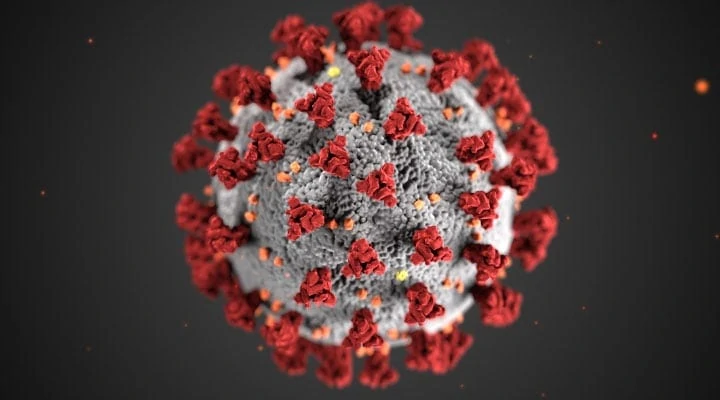The Centers for Disease Control has updated their risk assessment regarding Coronavirus during pregnancy. The CDC previously stated your risk during pregnancy was low. Now they state “pregnant people might be at an increased risk for severe illness from COVID-19 compared to non-pregnant people.” The following is the current guidance from the CDC.
Additionally, there may be an increased risk of adverse pregnancy outcomes, such as preterm birth, among pregnant people with COVID-19. Therefore, if you are pregnant, be mindful about reducing your risk of getting sick. If you are caring for children, you can teach them everyday steps (such as proper hand washing) to help them stay healthy and, in turn, help protect yourself and your family.
If I have COVID-19, will it spread to my baby during pregnancy?
According to the CDC, only a few newborns have tested positive for COVID-19 shortly after birth. It is unknown if these newborns got the virus before, during, or after birth. Most newborns who tested positive for COVID-19 had mild or no symptoms and recovered.
National Institutes of Health research has shown that the cells of the placenta don’t allow SARS-CoV-2 to travel to a developing baby. Because of this, the chance that your baby will be born with COVID-19 is very low.
The NIH supports research on the placenta, including a study using magnetic resonance imaging (MRI) to see what happens when SARS-CoV-2 tries to enter the placenta’s cells.
Take steps to protect yourself from COVID-19
There is no way to ensure you have zero risk of infection, so it is important to understand the risks and know how to be as safe as possible. In general, the more people you interact with, the more closely you interact with them, and the longer that interaction, the higher your risk of getting and spreading COVID-19.
Here are preventive steps you and people you live with can take:
- Limit close contact interactions with other people as much as possible.
- When going out or interacting with others outside your immediate household,
- Wear a mask, especially when other social distancing measures are difficult to maintain. Note that wearing a mask is not a substitute for other everyday prevention actions like washing hands frequently and avoiding close contact with other people.
- Avoid others who are not wearing masks or ask others around you to wear a mask, if possible.
- Stay at least 6 feet away from others outside your household.
- Wash your hands with soap and water for at least 20 seconds. If soap and water are not available, use a hand sanitizer with at least 60% alcohol.
- Avoid activities where taking protective measures may be difficult and where social distancing can’t be maintained.
Don’t skip your healthcare appointments during and after pregnancy.
- Visit your healthcare provider for all recommended appointments. If you need help finding one, contact your nearest hospital clinic, community health centerexternal icon, or health department.
- Talk to your healthcare provider about
- How to stay healthy and take care of yourself and your baby.
- Any questions you have about the best place to deliver your baby. Delivering your baby is always safest under the care of trained healthcare professionals.
If you’re concerned about going to your appointments because of COVID-19, ask your healthcare provider what steps they’re taking to separate healthy patients from those who may be sick.
- Some healthcare providers may choose to cancel or postpone some visits.
- Others may switch certain appointments to telemedicine visits, which are appointments over the phone or video.
- These decisions may be based on the situation in your community as well as your individual health risks.
Get recommended vaccines and a 30-day supply of your medicines
Getting the recommended vaccines during pregnancy can help protect you and your baby.
- Get vaccinated against influenza (or flu).
- Flu and COVID-19 are both respiratory illnesses that can spread from person to person. They can affect breathing and have similar symptoms, but they are caused by different viruses (read more about similarities and differences between flu and COVID-19). It is unknown how these two viruses may interact during the upcoming flu season.
- There is no vaccine available to protect against the virus that causes COVID-19.
- You should protect yourself against flu by getting vaccinated. Others living in your household should also get vaccinated to protect themselves and you.
- Get the whooping cough (Tdap) vaccine during pregnancy to protect your baby against whooping cough, which can also present with similar symptoms to COVID-19.
Ask your doctor and pharmacy to give you at least a 30-day supply of the medicines you need.
Call your healthcare provider if you have any health concerns
These concerns may include:
- You think you have COVID-19 (call within 24 hours).
- You think you are experiencing depression during or after pregnancy.
- You have any questions related to your health.
Don’t delay getting emergency care because of COVID-19
Call 911 or go to your local emergency department.
If you are going to the emergency department, call and tell them that you are pregnant and are having an emergency. They should have a plan to protect you from getting COVID-19.
If someone else is driving, call while you’re on the way. If you need to drive yourself to the emergency department, call before you start driving.
Information on the coronavirus comes from:
National Institute of Health
Want to Know More?
- Stay Healthy While Pregnant with COVID-19
- COVID-19 and Breastfeeding
- Newborns Risks from Mothers with COVID-19






